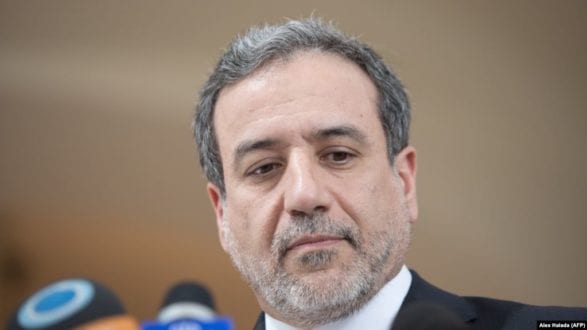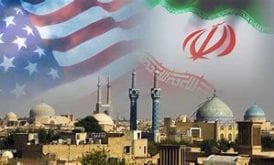PayvandNews – Iranian Deputy Foreign Minister Abbas Araghchi said on Monday that transactions within INSTEX barter mechanism is entering its final phase. INSTEX – the Instrument in Support of Trade Exchanges – is designed to circumvent U.S. sanctions against trade with Iran by avoiding the use of the dollar. It was introduced by the European trio of France, Germany, and Britain on January 31.

Iranian Deputy Foreign Minister Abbas Araghchi
“Interaction between INSTEX and the similar Iranian institution is at the final phase,” Araghchi told reporters on the sidelines of a conference at the University of Tehran.
He added, “Recently, the two institutions signed a memorandum of understanding and we hope that the first interaction will take place in the coming days.”
On March 20, Iran’s central bank governor Abdolnaser Hemmati announced that a mechanism similar to INSTEX has been registered in Iran, officially called the Special Trade and Finance Institute (STFI).
INSTEX was introduced long after the U.S. imposed sanctions on Iran and threatened to punish any country or company that does business with Iran.
Belgium, Denmark, Finland, the Netherlands, Norway, and Sweden issued a joint statement on November 29 announcing becoming shareholders of INSTEX.
France, Germany and the United Kingdom issued a statement on November 30 welcoming the decision by the six countries.
“As founding shareholders of the Instrument in Support of Trade Exchanges (INSTEX), France, Germany, and the United Kingdom warmly welcome the decision taken by the governments of Belgium, Denmark, Finland, the Netherlands, Norway, and Sweden, to join INSTEX as shareholders,” the statement said.
It added, “This step further strengthens INSTEX and demonstrates European efforts to facilitate legitimate trade between Europe and Iran and is a clear expression of our continuing commitment to the Joint Comprehensive Plan of Action (JCPOA).”
The statement also noted that the full and effective implementation of the JCPOA is of utmost importance.
Chinese Foreign Ministry spokesperson Hua Chunying said on December 3 that China highly commends efforts to implement INSTEX.
‘We hope Expediency Council’s decision on FATF will be based on country’s expediency’
Araghchi also said that the Expediency Council takes the final decision on the Financial Action Task Force (FATF), expressing hope the decision would be in line with the country’s “expediency”.
Gholamreza Mesbahi-Moghadam, a member of the Expediency Council, has said that the council has set aside studying the Palermo bill, which its ratification along the CFT are needed for joining the FATF.
Talking to the Mehr news agency in an interview in November, he said for a one-year by the council to assess the pros and cons of Palermo with the “country’s expediency” has ended its study is actually out of question.
Mesbahi-Moghadam added, “The deadline for the Expediency Council to study CFT has not passed yet.”
The overall atmosphere in the Expediency Council is against approving the FATF. The opposition to ratifying the FATF rose after the abrogation of the 2015 nuclear deal by the United States and the return of sanctions.
Mesbahi-Moghadam, a cleric trained in the economy, said, “In a situation in which the country is under the most severe sanctions, joining such conventions is synonymous with self-inflicted sanctions. In the situation in which the United States seeks to limit the country’s financial relations, it is not beneficial to join institutions like FATF.”
The parliament ratified the FATF in October 2018, however, the oversight Guardian Council rejected the bill.
Whenever there is a dispute between the parliament and the Guardian Council on a bill it is referred to the Expediency Council for final arbitration.
The Paris-based Financial Action Task Force (FATF) said on October 18 that it has given Iran a final deadline of February 2020 to tighten its laws against money laundering in compliance with the global watchdog’s financial standards.
“If before February 2020, Iran does not enact the Palermo and Terrorist Financing Conventions in line with the FATF Standards, then the FATF will fully lift the suspension of counter-measures and call on its members and urge all jurisdictions to apply effective counter-measures, in line with recommendation 19,” the FATF said in a statement, Reuters reported.
One of the actions Iran is required to take to appease the FATF is to ratify the CFT, the convention combatting the financing of terrorism.
Mesbahi-Moghadam, who served as parliament representative for two four-year terms, also told ISNA in an interview last month that the council has set aside studies to approve bills related to the FATF.
“Palermo and CFT will help the United States to identify the ways we circumvent the sanctions. We will not tighten sanctions by our own hands,” he remarked.
However, the government is pushing for the approval of the FATF.
Talking in a cabinet meeting on October 23, President Hassan Rouhani called on the Expediency Council to approve the FATF related bills.
“It is our pride that we fight terrorists and counter corruption, therefore we should not allow allegations of money laundering against our banking system,” Rouhani stated.
He added, “This hurts our country.”
Mahmoud Vaezi, the presidential chief of staff, said on October 30 that Iran should use the opportunity to join the FATF in order to avoid self-inflicted sanctions.
He said those who oppose joining the FATF should accept responsibility for their actions.
 Shabtabnews In this dark night, I have lost my way – Arise from a corner, oh you the star of guidance.
Shabtabnews In this dark night, I have lost my way – Arise from a corner, oh you the star of guidance.



